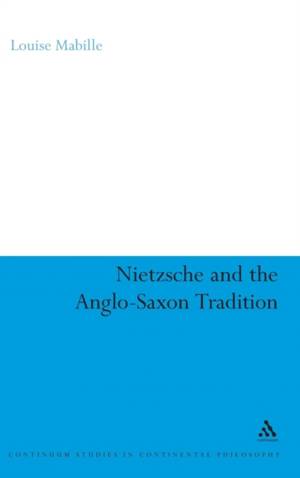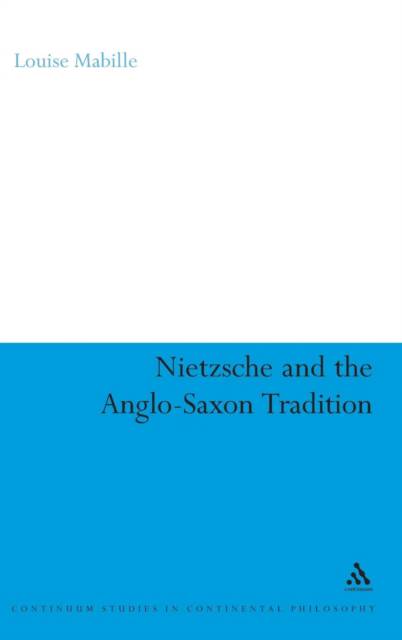
Bedankt voor het vertrouwen het afgelopen jaar! Om jou te bedanken bieden we GRATIS verzending (in België) aan op alles gedurende de hele maand januari.
- Afhalen na 1 uur in een winkel met voorraad
- In januari gratis thuislevering in België
- Ruim aanbod met 7 miljoen producten
Bedankt voor het vertrouwen het afgelopen jaar! Om jou te bedanken bieden we GRATIS verzending (in België) aan op alles gedurende de hele maand januari.
- Afhalen na 1 uur in een winkel met voorraad
- In januari gratis thuislevering in België
- Ruim aanbod met 7 miljoen producten
Zoeken
Omschrijving
This book offers the first detailed examination of the influence of the English-speaking world on the development of Nietzsche's philosophy. In recent years, Nietzsche's reputation has undergone a transformation and he is today seen as one of the greatest defenders of human freedom. His is more than just a model for political liberty. It is a grand vision of what humanity could be if it really unleashed its creative power. And Nietzsche owes more than just a passing debt to the Anglo-Saxon world in the construction of this vision.
Yet much of what Nietzsche has to say about the British philosophy reaches the pitch of denunciation and personal insult. He refers to Darwin as 'mediocre'; and to John Stuart Mill as 'that flathead'. While he gladly acknowledges the French roots of his thought, very little has been said about the English giants whose influence abounds in his work.
Louise Mabille fills a gap in the scholarship on Nietzsche by offering an important and fascinating account of his engagement with the Anglo-Saxon philosophical tradition.
Yet much of what Nietzsche has to say about the British philosophy reaches the pitch of denunciation and personal insult. He refers to Darwin as 'mediocre'; and to John Stuart Mill as 'that flathead'. While he gladly acknowledges the French roots of his thought, very little has been said about the English giants whose influence abounds in his work.
Louise Mabille fills a gap in the scholarship on Nietzsche by offering an important and fascinating account of his engagement with the Anglo-Saxon philosophical tradition.
Specificaties
Betrokkenen
- Auteur(s):
- Uitgeverij:
Inhoud
- Aantal bladzijden:
- 218
- Taal:
- Engels
- Reeks:
- Reeksnummer:
- nr. 41
Eigenschappen
- Productcode (EAN):
- 9780826498632
- Verschijningsdatum:
- 13/06/2009
- Uitvoering:
- Hardcover
- Formaat:
- Ongenaaid / garenloos gebonden
- Afmetingen:
- 155 mm x 236 mm
- Gewicht:
- 476 g

Alleen bij Standaard Boekhandel
+ 746 punten op je klantenkaart van Standaard Boekhandel
Beoordelingen
We publiceren alleen reviews die voldoen aan de voorwaarden voor reviews. Bekijk onze voorwaarden voor reviews.









